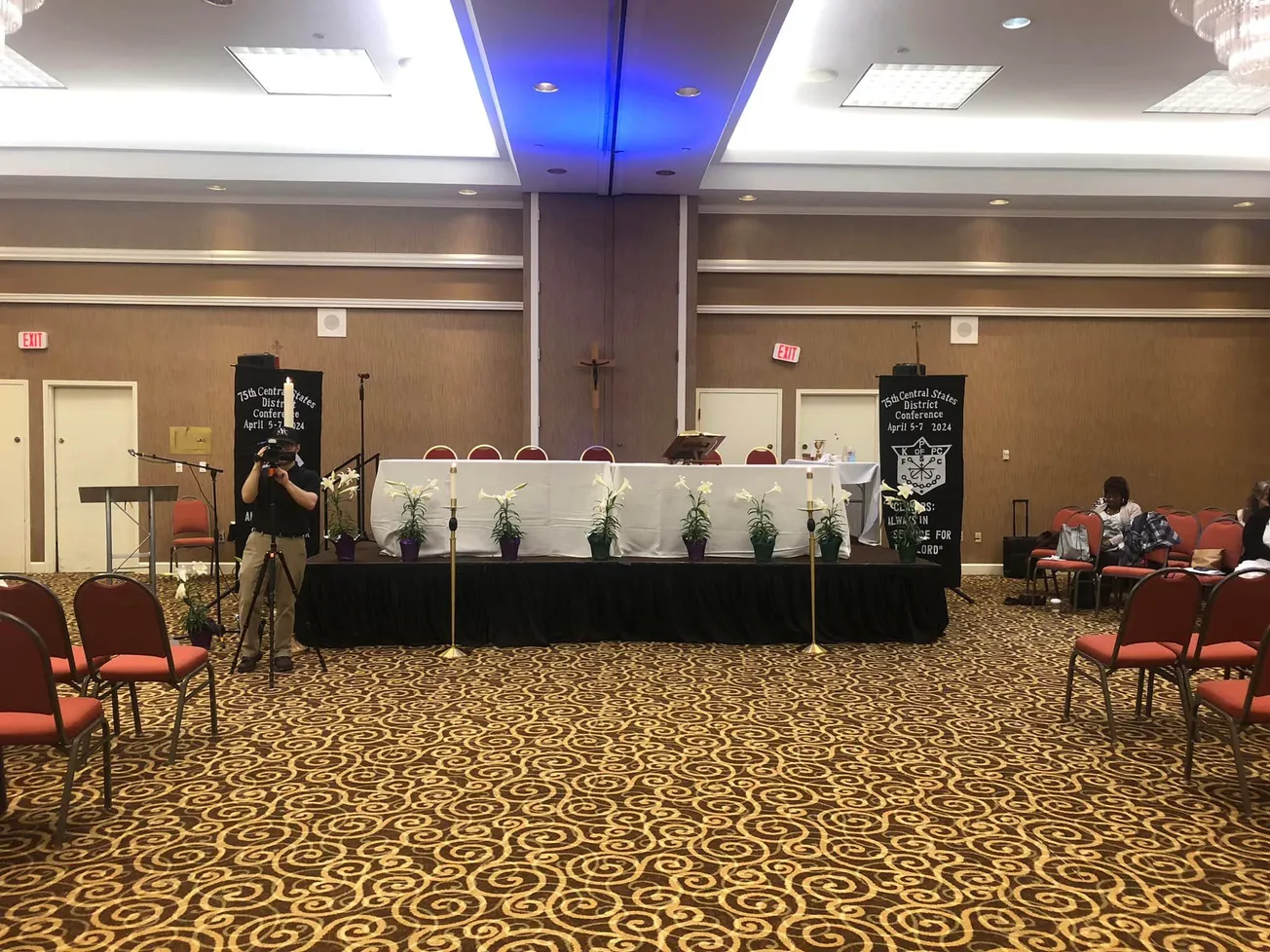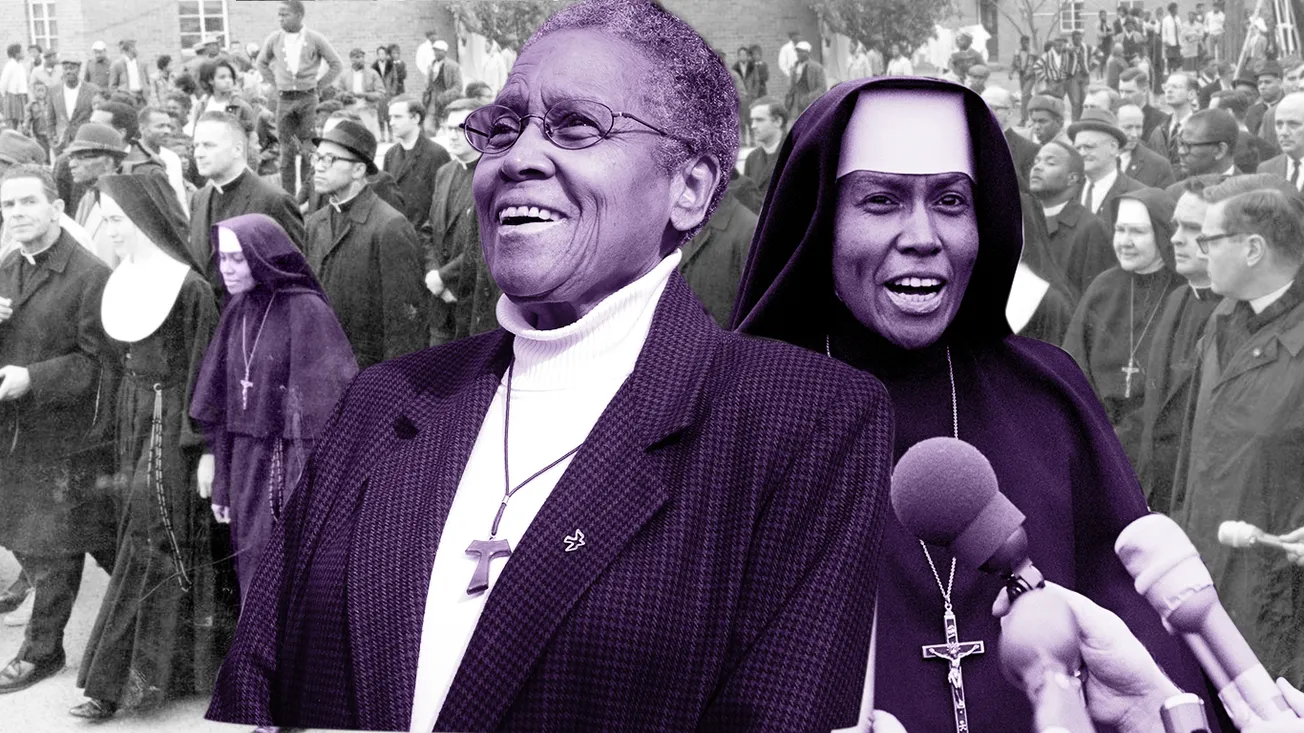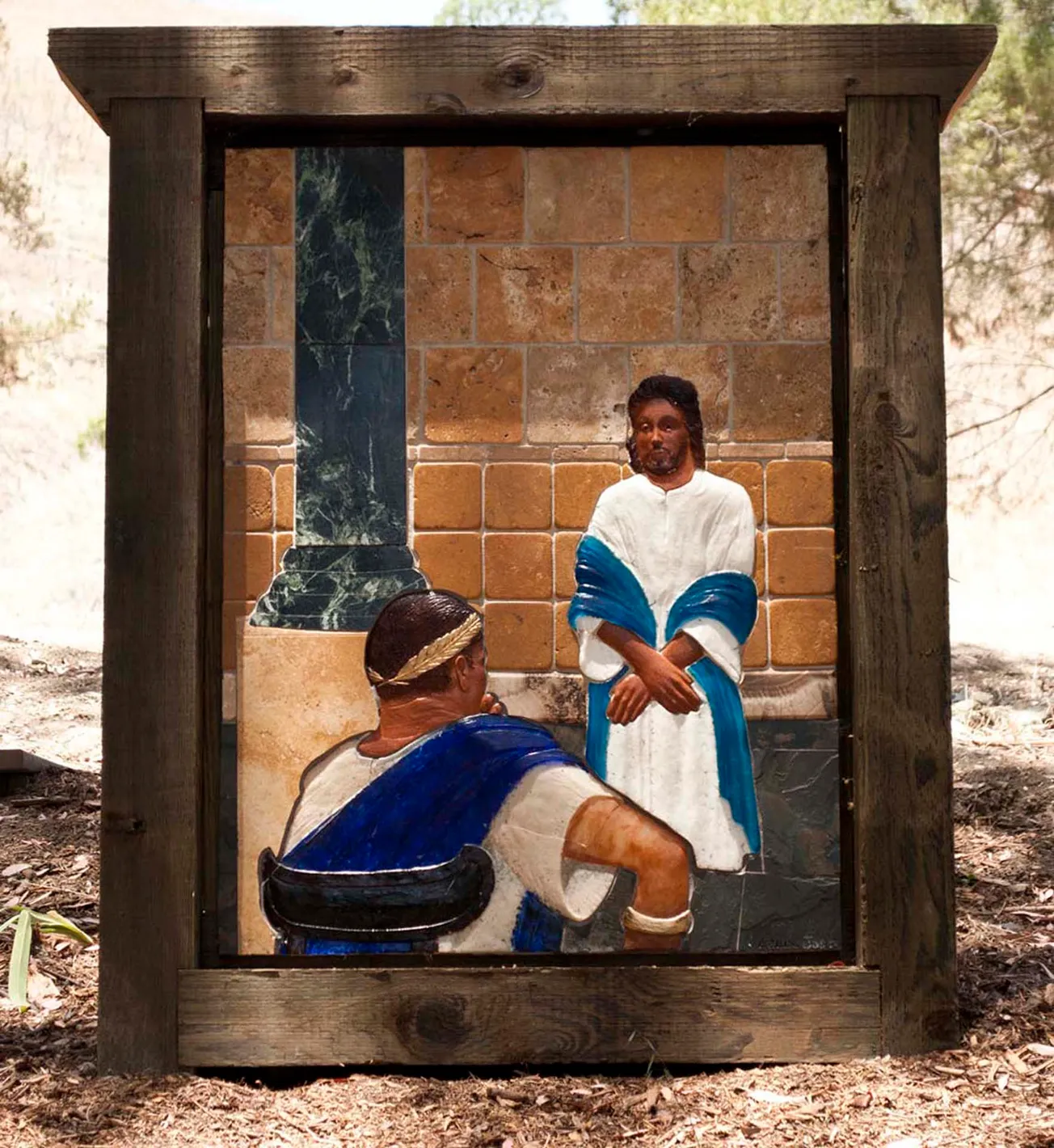The Latin word for Mass is “missa”, which means “to send out.” So every time you leave Mass, you are being sent out on a mission to share God’s light with the world. One of the ways we share our light is by following the Ninth Commandment, which instructs us to love our neighbor as ourselves. Unfortunately, our enslaved ancestors were not given the privilege of receiving neighborly love from those who owned them.
It was partly through songs that our ancestors were able to endure the pain brought upon them by their masters. Song has the ability to lift up a person’s spirits or tear them down. The songs they sang were born out of an era where, for them, there was no choice and no freedom. Fortunately, today we have a choice. We get to decide which songs will be passed down to future generations.
“Research has shown that 3-month-old babies prefer faces from certain racial groups, 9-month-olds use race to categorize faces, and 3-year-old children in the U.S. associate some racial groups with negative traits. By age 4, children in the U.S. associate whites with wealth and higher status, and race-based discrimination is already widespread when children start elementary school.”
—American Psychological Association (APA)
As a mom and an educator, I love singing songs to children. When I recently had my new baby and wanted to sing her a sweet tune I discovered the hidden dangers from some of the songs that had been passed down from generations.
The last thing parents and educators want to do is teach children to hate groups of people, but you could be doing it right now with the songs you are choosing to sing. Let’s take a deeper look at the songs and rhymes that are teaching children race-based discrimination.
- Shortnin’ Bread
Two little n***rs
Lyin' in bed
One of 'em sick
An' de odder mos' dead.
Call for de doctor
An' de doctor said,
“Feed dem darkies on shortenin' bread”
Mammy's little baby loves
Shortenin', shortenin',
Mammy's little baby love shortnin' bread.
The most common version of “Shortnin’ Bread” is by the Andrews Sisters, released in 1938. Those lyrics are tame, but still questionable compared to the original, which was an American folk song dating back to the 1800s. The original was thought to be sung as the enslaved worked in the fields to pass the time. The lyrics, however, reflect the oppressiveness of that time. The problem is that this song and others like it are still in use today. Cartoons such as “The Wiggles” and “Clifford the Big Red Dog” have subjected children to their catchy version of this song, thus further perpetuating prejudice.
- “Five Little Monkeys Jumping on the Bed”
This children’s song, often sung to teach children rhythmic counting, is also highly offensive due to its racist origins. Sung to the same tune as “Shortnin’ Bread,” the original used the n-word and “darkies” to label the characters jumping on the bed. Decades later, the lyrics were changed to “monkey” instead of the more highly offensive words. The problem here, of course, is that the word “monkey” is also an oppressive word used to refer to a Black person. Therefore, in trying to cover up the lyrics of the song, children are receiving their first introduction to racial bias.
- “Baa, Baa, Black Sheep”
Baa, Baa, Black Sheep, have you any wool?
Yes sir, yes sir, three bags full.
One for the master, one for the dame, and one for the boy who lives down the lane.
This song refers to a master and boy, and as you might know, enslaved Black men were referred to by their masters as “boy” as a way to degrade them. The reference to black sheep has also been interpreted as racially offensive. Once again, we have a song that demoralizes the Black race and society continues to use it as a supposedly innocent and catchy tune for children.
Writing for the APA, Dr. Jessica Sullivan shared the following:
“Children are capable of thinking about all sorts of complex topics at a very young age. Even if adults don't talk to kids about race, children will work to make sense of their world and will come up with their own ideas, which may be inaccurate or detrimental.”
Since children have an innate understanding of differences when it comes to race, we have an opportunity to foster their curiosity and love for every race in the songs we sing. In singing these offensive children’s songs and others like them, we are perpetuating race-based discrimination. When we love our neighbor, we are modeling God’s love. These songs are not rooted in God’s love, but rather the harsh treatment of a bygone, racist era.
At every Mass, our priests pray for those “who have fallen asleep.” Perhaps that has more than just one meaning. Let’s listen to those words with new ears and act in accordance with the will of God. As a Church, we must wake up to the ways we miseducate our young in the U.S. and make a change. How will you model God’s love in this matter?
Author’s note: For more information on culturally sensitive and diverse children’s songs, books, and articles, visit brownicity.com
Sara Chinakwe is a wife, mother, teacher, and children’s ministry leader. She encourages women and children to pursue God’s purpose and embrace their God-given identity. Sara’s deep love of teaching and decades-long career in education was shaped at California State University Stanislaus. Since then, she has used writing as a medium to propel God’s followers forward as they journey with Him. You can find Christian resources for mothers and children at sarachinakwe.com.











